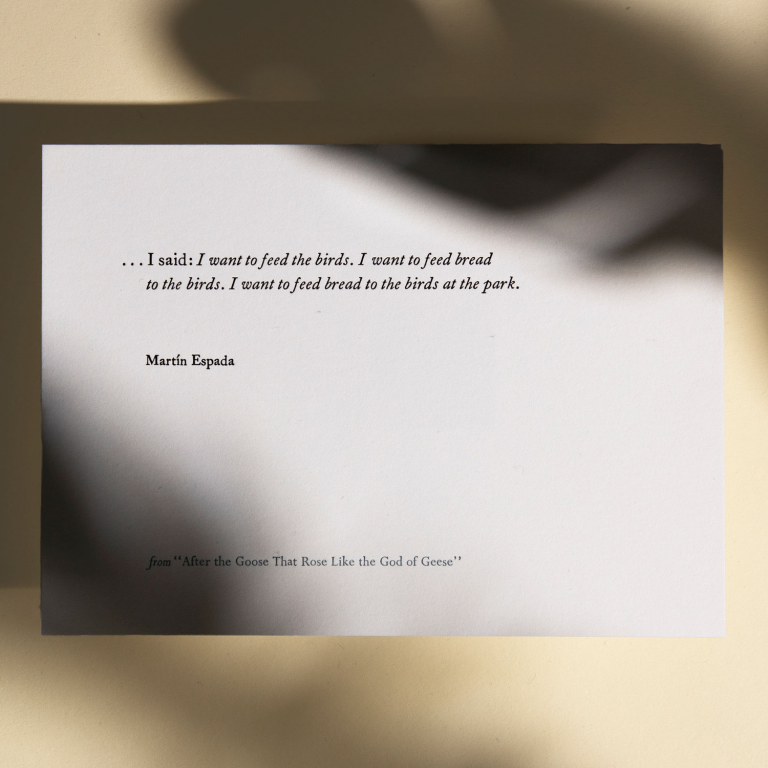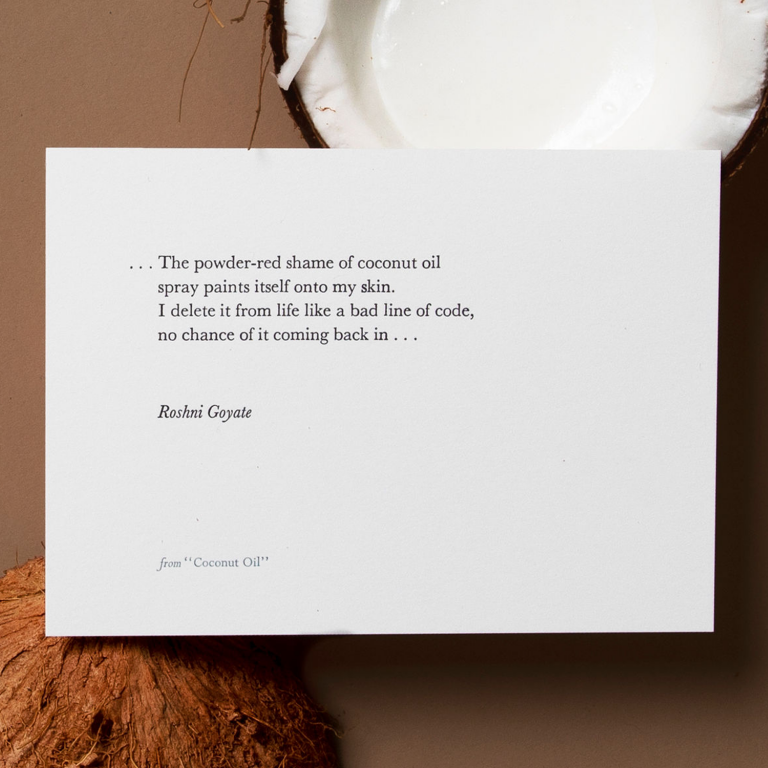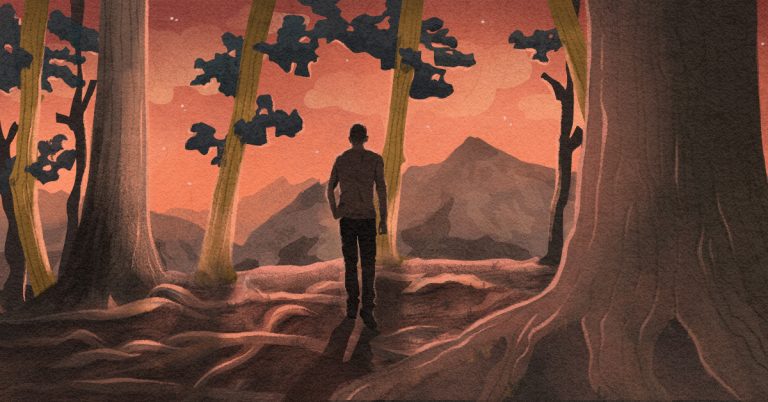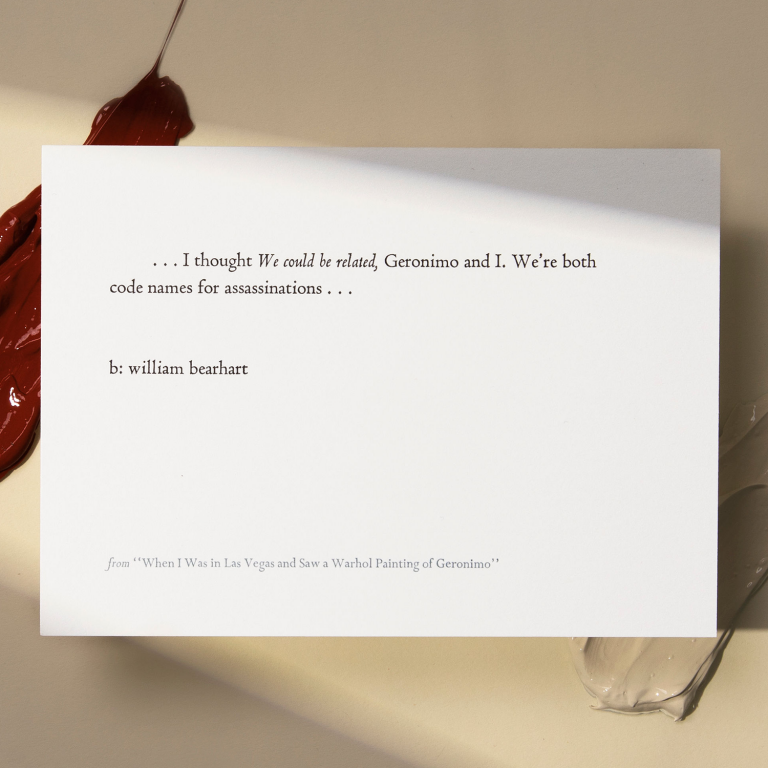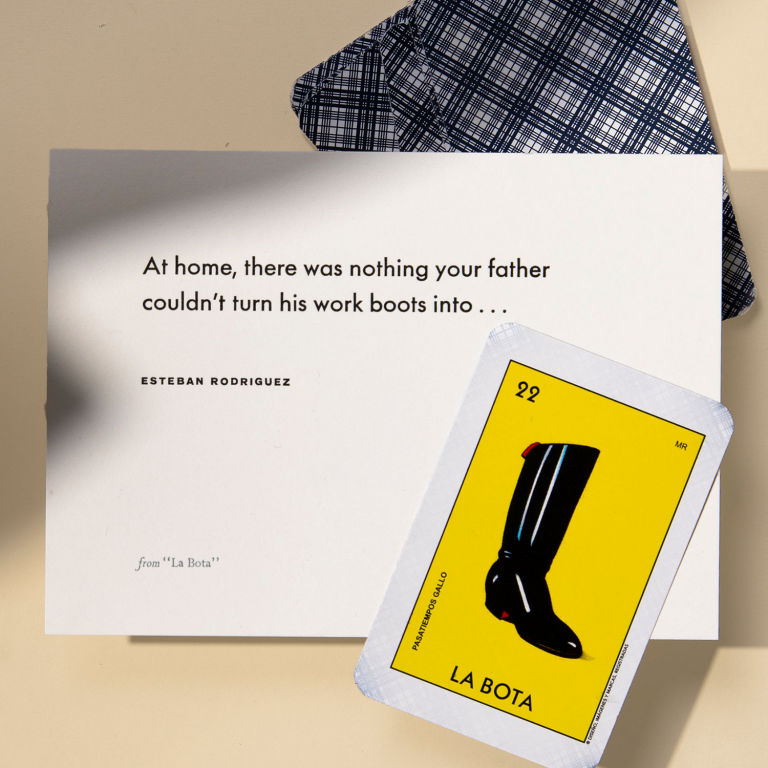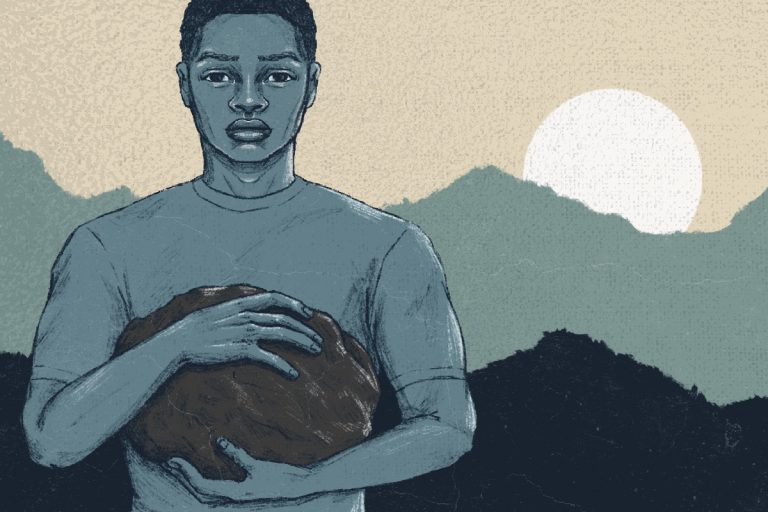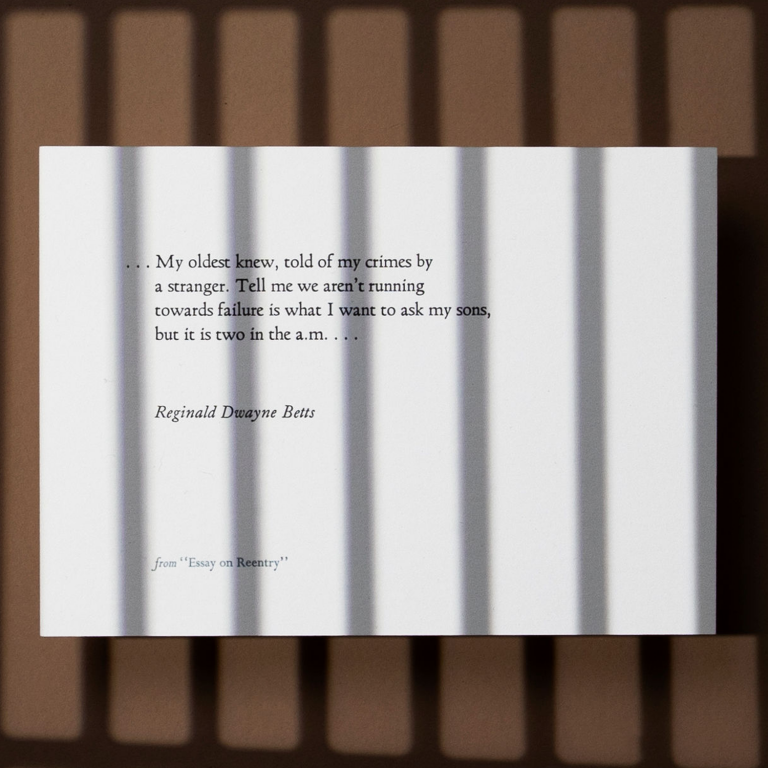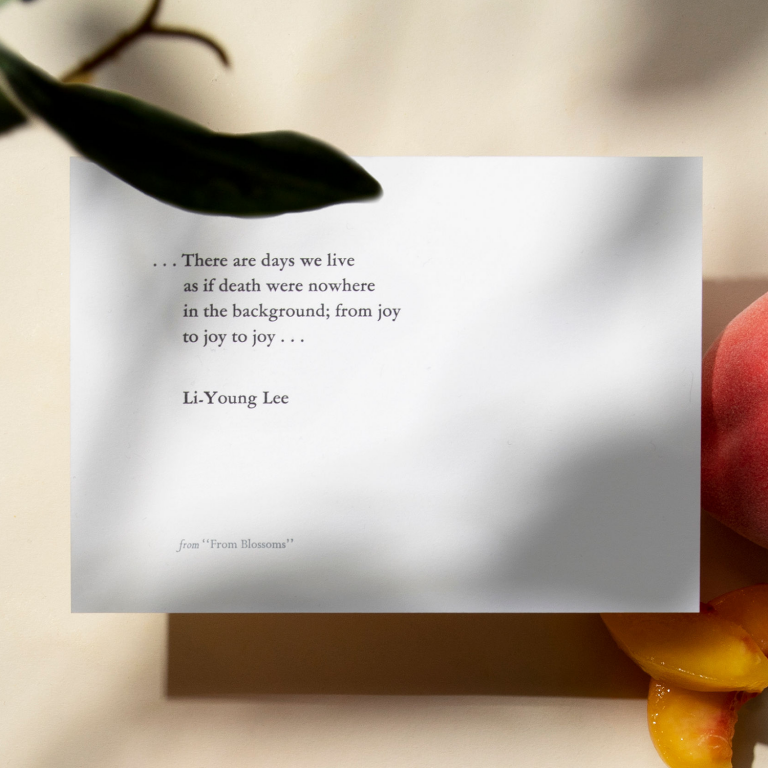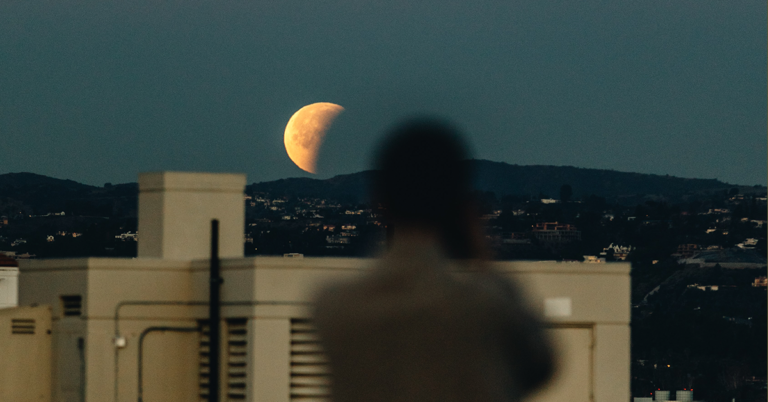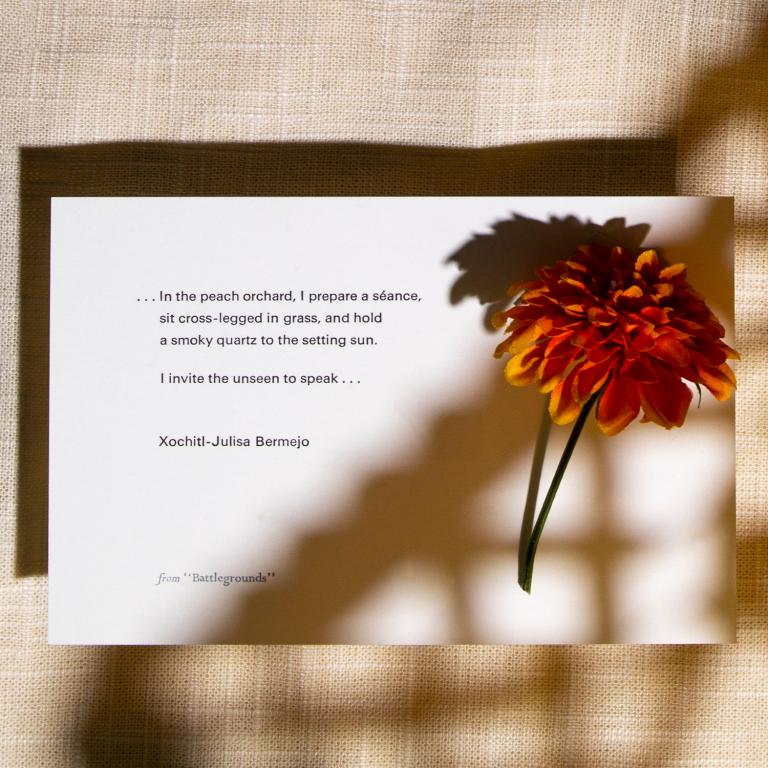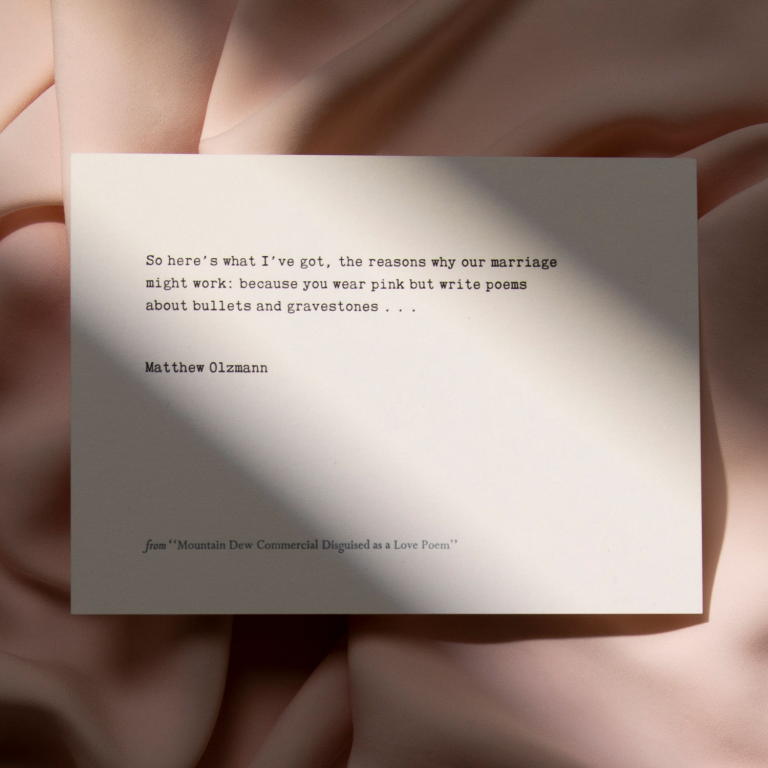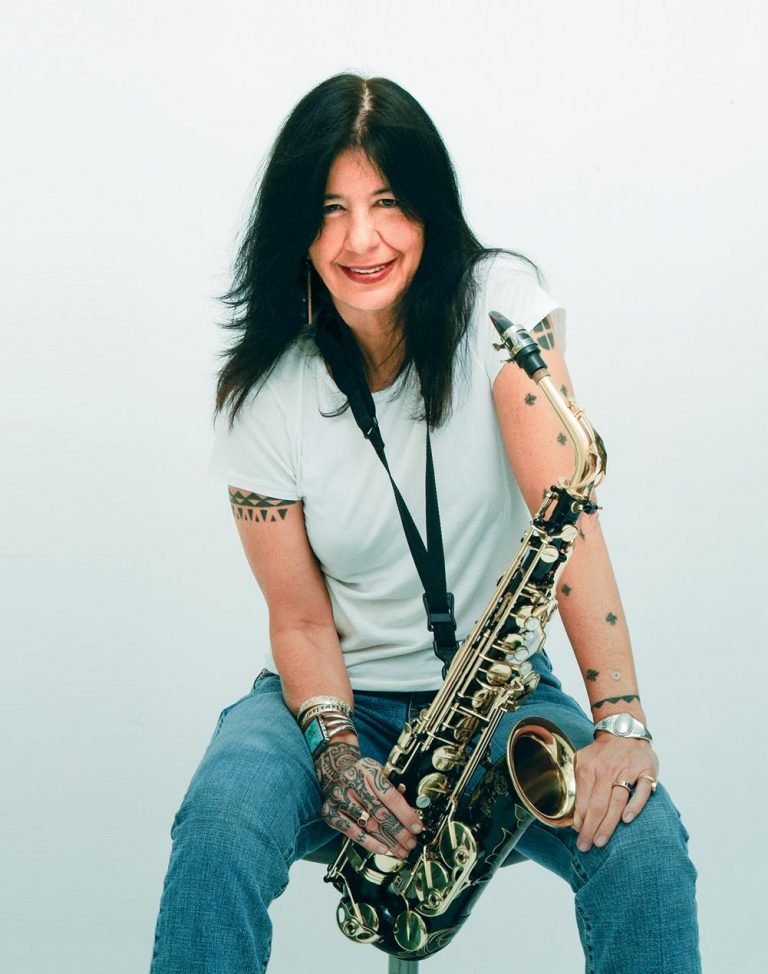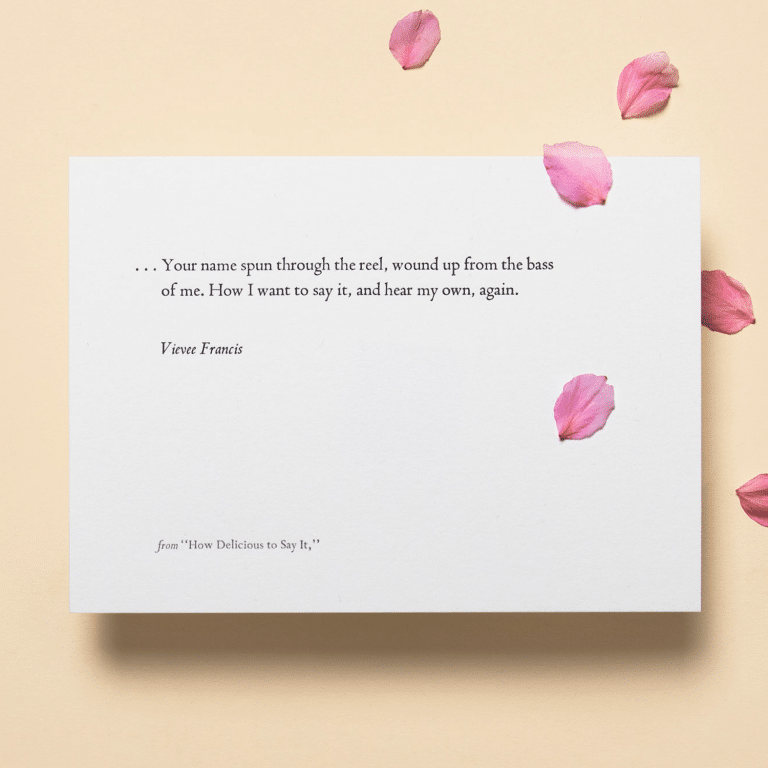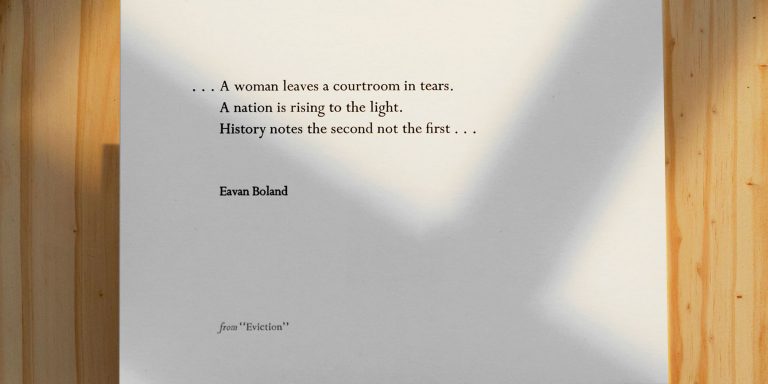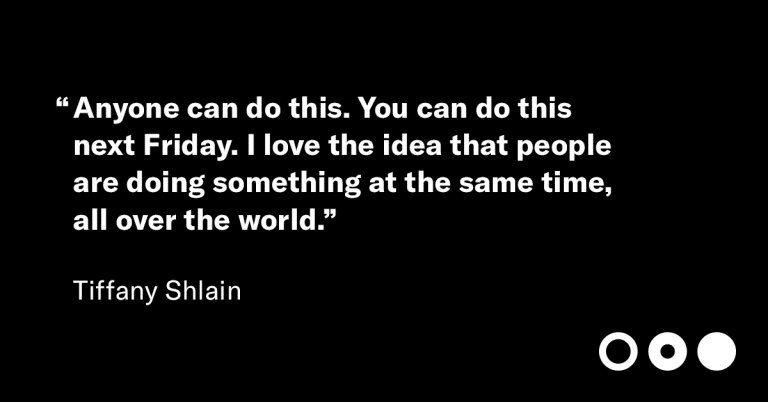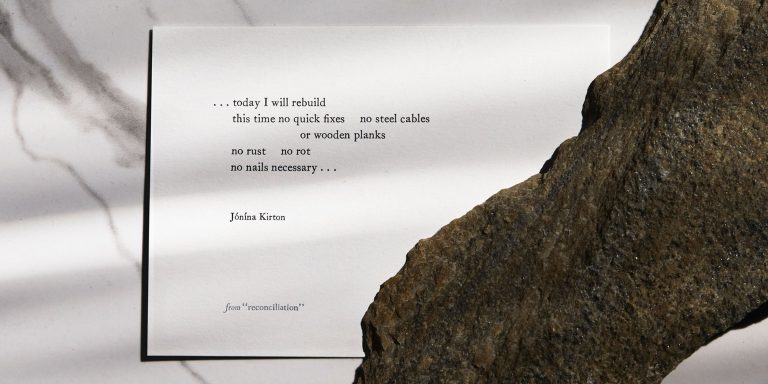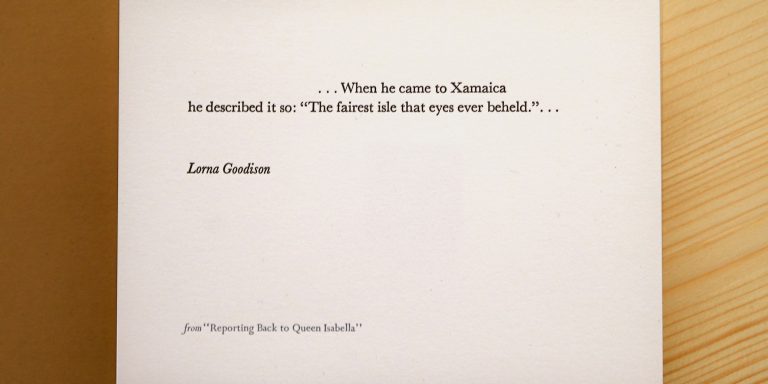Bereavement brings all kinds of pressures. This poem by Martín Espada starts off with a grief-to-do-list: a phone call, a flight, a blizzard, cremations, shipments of ashes, memorial services. After all of this — in a first stanza that builds in intensity — he needs to be reconnected with something tangible. He goes to feed birds at the park, and among the birds is a goose, like a god of the geese, who shrieks with all the emotion stored in him. This goose is like a priest of grief for Martín Espada, voicing the sounds of all that he’s feeling.
Podcasts
View
- List View
- Standard View
- Grid View
910 Results
In many ways this poem can be analyzed by how it ends: by examining the contents of organic shops. Roshni Goyate looks at one such item — coconut oil for hair — and considers its long line of history in her British-Indian family. As a child, she was shamed by classmates for using coconut oil in her hair, but now it’s double the price in shops. In a cruel irony, her race and culture were both hypervisible to those who taunted her and rendered invisible by those same people who invalidated her presence and citizenship.
There’s dark matter in the cosmos, and inside us, and hidden beneath our feet. Robert Macfarlane is an explorer and linguist of landscape and his book, Underland: A Deep Time Journey, is an odyssey that’s full of surprises — from caves and catacombs under land, under cities, and under forests to the meltwater of Greenland. “Since before we were Homo sapiens,” he writes, “humans have been seeking out spaces of darkness in which to find and make meaning.” Darkness in the natural world and in human life, he suggests, is a medium of vision — and descent, a movement toward revelation.
When looking at Andy Warhol’s painting of Geronimo — a leader and medicine man of the Bedonkohe band of the Apache tribe — b: william bearheart wonders who the Geronimo of the painting is looking back at, and who is looking at it. In many ways, this poem reflects on how this piece of art depicting an Indigenous American was painted by a White person for White people. However, the poet finds connections — of pain, occupation and experience — between himself and Geronimo; and the poem challenges the centrality of the White european gaze.
A poet considers his father, and, particularly, his father’s boots. These boots could be a hammer, a prop, a weapon. But Esteban Rodríguez also remembers how his father — a sleepwalker — would walk outside at night in his underwear, wielding his boots, slapping them against each other in a kind of protective ritual. What spirits was his father protecting them from? What was he asserting about land and place, by standing guard, even in his dreams?
Letterpress art by Myrna Keliher.
May 27, 2021
Tracy K. Smith and Michael Kleber-Diggs
‘History is upon us... its hand against our back.’
The pandemic memoirs began almost immediately, and now comes another kind of offering — a searching look at the meaning of the racial catharsis to which the pandemic in some sense gave birth and voice and life. Tracy K. Smith co-edited the stunning book, There’s a Revolution Outside, My Love: Letters from a Crisis, a collection of 40 pieces that span an array of BIPOC voices from Edwidge Danticat to Reginald Dwayne Betts, from Layli Long Soldier to Ross Gay to Julia Alvarez. Tracy and Michael Kleber-Diggs, who also contributed an essay, join Krista for a conversation that is quiet and fierce and wise. They reflect inward and outward, backwards and forwards, from inside the Black experience of this pivotal time to be alive.
This ‘Essay on Reentry’ charts life after prison: and the way that others keep your sentence alive even when you’re wishing to just get on with your own life. It’s about secrets and choice and disclosure. And in the midst of all this, there is also love between a son and his dad, a son like a “straggling angel, / lost from his pack finding a way to fulfill his / duty.”
Letterpress art by Myrna Keliher.
A poem about blossoms that is not only about blossoms. Li-Young Lee remembers a glorious day when he and a companion bought peaches; peaches that had come from blossoms. And in the taste of peaches, the brown paper bag they came in, sold by a boy at a bend in a road, the poem tells us — again and again — that sweetness, yearning and generosity is possible, on all kinds of days.
Letterpress art by Myrna Keliher.
The Search for Extraterrestrial Intelligence — or SETI — goes beyond hunting for E.T. and habitable planets. Scientists in the field are using telescopes and satellites looking for signs of outright civilizational intelligence. One of the founding pioneers in this search is astronomer Jill Tarter. She is a co-founder of the SETI Institute and was an inspiration for Jodie Foster’s character in the movie Contact, based on the novel by Carl Sagan. To speak with Tarter is to begin to grasp the creative majesty of SETI and what’s relevant now in the ancient question: “Are we alone in the universe?”
This poem takes place on battlegrounds. The poet — Xochitl-Julisa Bermejo — is at Gettysburg National Military Park, where she wanders around the cemetery searching for the graves of Mexican soldiers. Instead she finds KKK books on display in the park’s visitors gift shop. So much of this poem is about unearthing, and making offerings of devotion and life: the poet makes offerings to her ancestors, but she also makes offerings of water bottles to migrants at border crossings.
Letterpress art by Myrna Keliher.
In this love poem, Matthew Olzmann writes about his wife — the poet Vievee Francis, whose poem for Matthew was featured in the previous episode — and the reasons why their marriage might work: her courage, her tenacity, her quirks, her multiplicities. He recounts instances of her generosity and lands on a story of how, when she was down to her “last damn dime,” she still bought a bottle of Mountain Dew for him, because she knew he loved it. This is a cinematic and musical poem, making exquisite use of a particular object: a bottle of soda, holding fizz in it, and symbolizing more love than it could contain.
Letterpress art by Myrna Keliher.
“Though we have instructions and a map buried in our hearts when we enter this world,” the extraordinary Joy Harjo has written, “nothing quite prepares us for the abrupt shift to the breathing realm.” She is a saxophone player and performer, a visual artist, a member of the Muscogee Creek Nation, and the 23rd Poet Laureate of the United States. She opens up with Krista about her life, dreaming as a way of relating to time and place, and the story matrix that connects us all.
Building up in lists of delicious words — uvular, hibiscus, loquacious, shuttlecock, dollop, chipotles and chocolate — this poem uses sensual language to make a simple point. Vievee Francis moves past these words and all their suggestions by telling us that her favorite word is the name of her husband — the poet Matthew Olzmann — and how she loves it when he says her name. Love, like this poem, can rejoice in many things, and take its own time to unfold its own delight.
Letterpress art by Myrna Keliher.
This poem offers critique into a moment of Irish history when Ireland, through independence, was rising to the light. But Irish women were facing lives as constricted in independence as under empire. Decades later, Eavan Boland reads a newspaper of her grandmother’s near-eviction and is consumed both by rage and critique of how history concerns itself with the politics of men, not women. This poem is a corrective, turning the gaze on historians, as well as history.
Letterpress art by Myrna Keliher.
The classic economic theory embedded in western democracies holds an assumption that human beings will almost always behave rationally in the end and make logical choices that will keep our society balanced on the whole. Daniel Kahneman is the psychologist who won the Nobel Prize in Economics for showing that this is simply not true. There’s something sobering — but also helpfully grounding — in speaking with this brilliant and humane scholar who explains why none of us is an equation that computes. As surely as we breathe, we will contradict ourselves and confound each other.
May 3, 2021
Living the Questions
We’ve been enmeshed with our technologies. Tech Shabbat for everyone?
Krista’s been in a conversation with Tiffany Shlain for several years about her practice of “Tech Shabbat.” For more than a decade, she and her family have taken a rest from screens sundown Friday to sundown Saturday; her book 24/6 is a kind of manual to open the practice to everyone. After a year in which many of us have relied on our devices as our portals to reality — even our sole connection to the people and places we love — Krista called Tiffany to talk about how this practice works. Might it be a reset and ritual we could all use?
This poem starts off by describing how split the poet — Jónína Kirton — feels between two identities: having both Métis and Icelandic heritage. The poem imagines a bridge between these two places and cultures, and arrives, in the second stanza, at the image of a “living root bridge.”It is in this image that the poem anchors itself: a bridge that is part of the earth, a bridge that lives, that is not torn, but alive and growing. This metaphor speaks to what is possible in a life, and helps Jónína Kirton thrive in the tension she thought would tear her.
Letterpress art by Myrna Keliher.
In Lorna Goodison’s imagined scene, Spain’s Queen Isabella receives the ‘report’ of the discovery of Xamaica from Christopher Columbus, an Italian man who was financed by the Spanish court to ransack foreign lands. Lorna Goodison is the former Poet Laureate of Jamaica, and in this tight, terse poem, she’s the explorer: exploring practices of colonization, finance, power and administration. With pomp and ceremony she describes a scene that was as vacuous as it was dangerous.
Letterpress art by Myrna Keliher.
The Pause
Join our constellation of listening and living.
The Pause is a monthly Saturday morning companion to all things On Being, with heads-up on new episodes, special offerings, event invitations, recommendations, and reflections from Krista all year round.
Search results for “”
View
- List View
- Standard View
- Grid View
Filters


